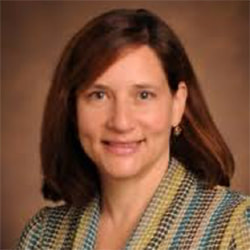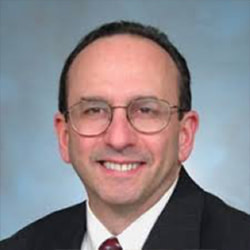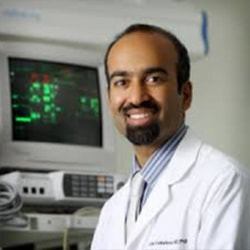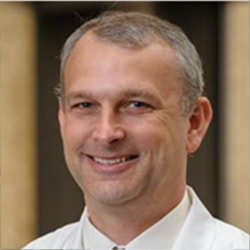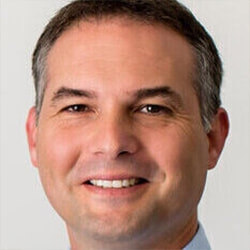Encephalitis411’s medical faculty members includes encephalitis experts from world-class medical institutions across the U.S. All of them have have made key contributions to the field, with several of them authoring seminal research publications that have shaped our foundational understanding and best practice care models of encephalitis today. This includes research into prevalence rates, etiology, biomarkers, vaccination risk assessments, and emerging diagnostic technologies.
Collectively, our medical faculty members have been affiliated with the care of more than 7,000 patients. They have seen the gamut of pediatric, adult, autoimmune, and infectious encephalitis cases, and generously volunteer to consult with treating physicians on complex cases through a free service facilitated by our organization. We are privileged and honoured that these physicians have chosen to work with Encephalitis411 on improving the quality of life for those impacted by encephalitis!
Collectively, our medical faculty members have been affiliated with the care of more than 7,000 patients. They have seen the gamut of pediatric, adult, autoimmune, and infectious encephalitis cases, and generously volunteer to consult with treating physicians on complex cases through a free service facilitated by our organization. We are privileged and honoured that these physicians have chosen to work with Encephalitis411 on improving the quality of life for those impacted by encephalitis!
Dr. Karen BlochDr. Karen Bloch is board certified in Infectious Diseases and serves as an Associate Professor of Health Policy and Medicine (Infectious Diseases) at Vanderbilt University Medical Center. Her research interests include encephalitis, infections of the central nervous system, and arthropod-borne infections.
Dr. Bloch graduated from medical school at the University of Virginia (MD, 1990). She completed internship and residency at Yale-New Haven Hospital (New Haven, CT) in 1993, a Master's in Public Health (MPH) from the University of California, Berkeley in 1996, and an infectious disease fellowship at the University of California, San Francisco (UCSF) in 1997. Dr. Bloch contributed to the Infectious Diseases Society of America guidelines on the management of encephalitis (2008), and co-authored the International Encephalitis Consortium recommendations on the case definition for encephalitis (2013). She has been awarded the William Schaffner Teaching award in infectious diseases in 2003, 2008, and 2011 and has been an investigator on several Emerging Infections Program (EIP) studies sponsored by the CDC. |
Dr. Carol GlaserDr. Carol Glaser currently works with the California Department of Public Health (CDPH) as the Assistant Deputy Director and the Health Laboratory Director for the Office of the State Public Health. She is also the Medical Officer for the Infectious Disease Laboratories for CDPH.
Dr. Glaser trained in veterinary medicine at UC Davis Veterinary School and then attended medical school at Tulane Medical School. This was followed by a pediatric residency and then a pediatric infectious disease fellowship at the University of California, San Francisco (UCSF). After the completion of her training, she worked for 20 years for the Department Communicable Disease Division and served in several roles including Medical Officer of the Viral Rickettsial Disease Laboratory (VRDL), Chief of VRDL and Acting Chief of the Immunization Branch. She then joined Kaiser Permanente where she worked as a pediatric infectious disease clinician and lead of the pediatric antimicrobial stewardship program before recently rejoining CDPH. Dr. Glaser has worked on several public health issues including unexplained encephalitis, acute flaccid myelitis (AFM), unexplained deaths and influenza surveillance, West Nile virus, SARS (SARS-1), Middle Eastern Respiratory Syndrome, Hantavirus Pulmonary Syndrome, 2009 H1N1 influenza, and Enterovirus-D68 AFM. She was the Principal Investigator for the California Encephalitis Project and remains very active in the field of neurologic infectious diseases. |
Dr. Allan TunkelDr. Allan Tunkel is the Associate Dean for Medical Education at the Warren Alpert Medical School of Brown University. Prior to joining Brown, he was Chair of Medicine at Monmouth Medical Center and Professor of Medicine at Drexel University College of Medicine. During his tenure in the Department of Medicine he also served as Vice Chair, Vice-Chair for Education, and Residency Program Director. His extensive background spans medical education, administration, clinical expertise, and scholarship.
Dr. Tunkel has received numerous teaching awards and honors, and is passionate about physician training and mentorship. An undergraduate of Seton Hall University, Dr. Tunkel later pursued a PhD in experimental pathology followed by a medical degree at the University of Medicine and Dentistry of New Jersey, New Jersey Medical School. He completed his residency and chief residency in Medicine at the Hospital of the Medical College of Pennsylvania followed by a fellowship in Infectious Diseases at the University of Virginia. Dr. Tunkel is widely acknowledged as an international expert in bacterial meningitis and other central nervous system infections. |
Dr. Arun VenkatesanDr. Arun Venkatesan is the Director of the Johns Hopkins Encephalitis Center and an Associate Professor at the Johns Hopkins University School of Medicine, in the Department of Neurology, Division of Neuroimmunology and Neuroinfectious Diseases. He specializes in immunological/inflammatory and infectious diseases that affect the nervous system.
Dr. Venkatesan received his Ph.D. in microbiology/immunology and his M.D. from the University of California, Los Angeles, followed by an internship in internal medicine at Santa Clara Valley Medical Center and neurology residency at the Johns Hopkins Hospital. He has received funding from the National Institutes of Health, Howard Hughes Medical Institute, National Multiple Sclerosis Society, and Maryland Stem Cell Research Fund. Dr. Venkatesen is responsible for developing a multidisciplinary program at John Hopkins devoted to delineating pathogenesis and optimizing diagnosis and management of autoimmune and infectious conditions that affect the central nervous system. He currently oversees clinical activities and research at the John Hopkins Encephalitis Center. |
Dr. Steven VerninoDr. Steven Vernino, M.D., Ph.D., is a Distinguished Teaching Professor and Vice Chair of the Department of Neurology at UT Southwestern Medical Center. He is Co-Director of the Autoimmune Neurology Fellowship Program and also serves as Director of the Autonomic Disorders Clinic, the multidisciplinary Multiple System Atrophy Clinic, and the Autonomic Disorders Fellowship Program. As a physician he specializes in evaluating, diagnosing and treating autoimmune neurological disorders, autonomic disorders, and neuromuscular disorders.
Dr. Vernino earned his M.D. and Ph.D. degree in neuroscience at Baylor College of Medicine. He completed a neurology residency and fellowship training in neuroimmunology and electromyography at Mayo Clinic. He is a fellow of both the American Academy of Neurology, the American Neurological Association and the American Autonomic Society. The Vernino Lab focuses on improving the diagnosis and treatment of autoimmune neurological disorders, the mechanisms of autoimmune disorders of the nervous system, and investigating autoantibody testing methods. Dr. Vernino has published more than 100 peer-reviewed articles and dozens of book chapters. He has received numerous awards for his work as a clinician, researcher, and teacher. |
Dr. Michael WilsonDr. Michael Wilson is a neurologist specializing in infectious and autoimmune diseases of the central nervous system at the University of California at San Francisco (UCSF) Weill Institute for Neurosciences. His patient base includes people with autoimmune diseases like multiple sclerosis and autoimmune encephalitis, as well as patients with a wide array of infectious diseases that impact the nervous system like HIV, neurocysticercosis, neurosyphilis, viral encephalitis, and fungal infections.
Dr. Wilson completed his residency in neurology and fellowship in Neuro-Infectious diseases at Massachusetts General Hospital. He got a postdoctoral fellowship in metagenomics and virology at UCSF, Boston University and the National Emerging Infectious Diseases Laboratories. Dr. Wilson has received several awards, including the Award in Neuroscience from the American Neurological Association-Grass Foundation and the Debbie and Andy Rachleff Distinguished Professorship in Neurology from UCSF. Dr. Wilson has contributed to more than 60 research papers, with many focusing on emerging diagnostic and therapeutic tools for meningitis, encephalitis and multiple sclerosis. His laboratory applies metagenomic and immune repertoire sequencing techniques as well as phage display antibody discovery technologies to enhance our understanding of the causes and immunopathogenesis of multiple sclerosis as well as autoimmune and infectious causes of meningoencephalitis. |

